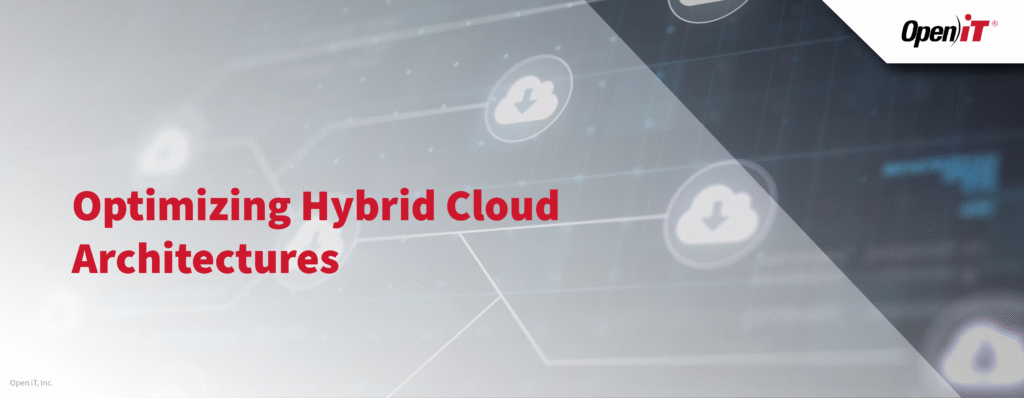Enterprises are increasingly moving toward hybrid environments that unify containerized workloads with traditional virtual machines. This approach preserves existing investments in legacy systems while taking advantage of the agility, scalability, and automation offered by Kubernetes. To support this evolution, Open iT now officially supports Red Hat OpenShift Virtualization (KubeVirt). This now allows organizations to deploy, operate, and manage Open iT components directly on OpenShift-managed virtual machines alongside their containerized workloads.
DEMO: Deploy Smarter on Red Hat OpenShift!
Bridging Virtual and Cloud-Native Workloads
Red Hat OpenShift Virtualization, built on the open source KubeVirt project, extends Kubernetes capabilities to run and manage virtual machines (VMs) within the same environment as containers. This means development and operations teams can consolidate both workloads under a single orchestration layer, standardizing provisioning, networking, storage, and lifecycle management.
For enterprises that rely on Open iT to collect, analyze, and optimize engineering and specialized software usage data, this interoperability simplifies deployment strategies. Open iT solutions, such as LicenseAnalyzer, can now be provisioned as OpenShift Virtual Machines running either Windows Server or Red Hat Enterprise Linux (RHEL). These VMs coexist seamlessly with containerized services, enabling a consistent management experience and unified observability through OpenShift’s native monitoring and automation tools.
Consistent Operations and Automation
By supporting OpenShift Virtualization, Open iT allows organizations to streamline how they deploy and maintain their software asset management infrastructure. Through cloud-init automation, teams can automate initialization tasks such as service configuration, license data source registration, and integration with enterprise identity or monitoring systems.
This eliminates many of the manual processes traditionally associated with deploying complex software monitoring solutions, particularly in hybrid environments. Additionally, integration with CI/CD pipelines means new releases or configuration changes to Open iT components can be automatically rolled out and tested within the OpenShift ecosystem.
As a result, enterprises benefit from:
- Reduced operational overhead, by managing containers and VMs through a unified toolset.
- Faster deployment and updates, through automated provisioning and lifecycle management.
- Improved consistency, as all environments—development, staging, and production—use the same deployment logic and configuration baselines.
Optimizing Hybrid Cloud Architectures

OpenShift Virtualization offers an important bridge for organizations modernizing their infrastructure incrementally. Rather than forcing an immediate migration to containers, it allows virtual machines to continue running mission-critical workloads within the same platform that will eventually host containerized services.
For Open iT users, this means the software usage data collection layer can remain on familiar VM-based architectures while analytics, reporting, or API services evolve into microservices or containers. This flexibility helps customers modernize at their own pace, reducing risk and minimizing disruption to production systems.
Furthermore, OpenShift provides consistent networking and storage abstractions, which simplifies connecting Open iT components with existing license servers, databases, and data warehouses—whether those reside on-premises or in public cloud environments. This makes it easier for organizations to build hybrid or multi-cloud deployments that combine the efficiency of containers with the stability of traditional VMs.
As organizations modernize their software environments—bridging traditional virtual machines with containerized workloads—their licensing strategies must evolve too. Open iT’s on-demand webinar, Preparing for Cloud-Based and SaaS Licensing Models, explores how enterprises can adapt their software asset management practices to hybrid and cloud-native ecosystems.
Watch the recording to understand how to future-proof your license management as you transition to OpenShift, Kubernetes, and other hybrid cloud platforms. Here’s your invitation.

Open iT | Webinars On-Demand
Preparing for Cloud Based and SaaS Licensing Models
Enterprise-Ready Integration and Observability
Enterprises using Open iT within OpenShift can also leverage the platform’s integrated observability stack to monitor performance, usage, and system health. By exporting metrics to OpenShift’s Prometheus and Grafana stacks, administrators gain full visibility into both the OpenShift infrastructure and the Open iT services running within it.
This integrated observability complements Open iT’s own advanced reporting and dashboarding capabilities. Together, they create a comprehensive view of how engineering and specialty software licenses are being utilized—whether in on-premises VMs, in the cloud, or in hybrid configurations managed by OpenShift.
Supporting Large-Scale Migrations and Modernization Initiatives
This new compatibility is especially relevant for organizations undertaking large-scale digital transformations or platform migrations—such as automotive, aerospace, and manufacturing enterprises that manage hundreds of engineering applications across global teams.
By confirming support for Red Hat OpenShift Virtualization, Open iT enables these organizations to:
- Deploy Open iT components directly within OpenShift environments, streamlining infrastructure consolidation efforts.
- Adopt hybrid architectures without operational disruption, maintaining continuity for mission-critical license usage data collection and reporting.
- Accelerate migration timelines, since validated interoperability eliminates integration uncertainty and testing delays.
This level of support helps enterprises proceed confidently with OpenShift-based rollouts, knowing that their software asset management platform can operate efficiently within the same environment as their evolving workloads.
Commitment to Hybrid and Open Ecosystems
As organizations continue to diversify their computing environments, balancing on-premises, cloud, and edge workloads, Open iT ensures that software usage analytics and optimization capabilities remain fully accessible, regardless of the underlying infrastructure.
By aligning with Red Hat’s hybrid cloud ecosystem, Open iT strengthens its position as a trusted partner for engineering and IT leaders seeking reliable, scalable, and data-driven insights into software utilization. This milestone reinforces Open iT’s mission: to help customers maximize the value of their software assets while maintaining the agility needed to evolve in complex, hybrid environments.
For additional details or technical guidance, contact Open iT to learn more about our support for Red Hat OpenShift Virtualization (KubeVirt).
See How Open iT Runs Seamlessly on KubeVirt.






